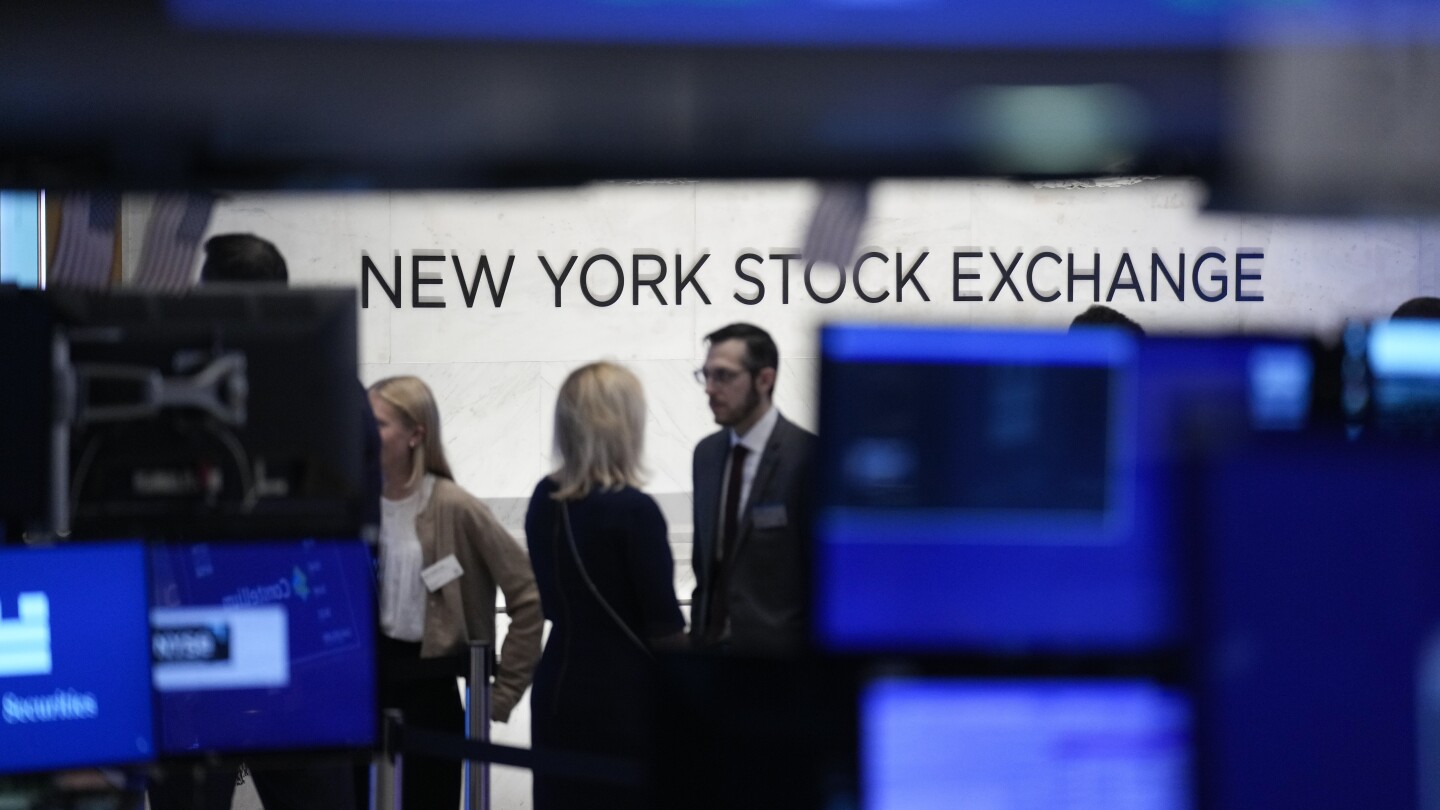NEW YORK (AP) — Stocks are falling Wednesday, as Wall Street loses some more momentum following its torrid run so far this year.
The S&P 500 was 0.7% lower in early trading and on track for a second straight losing day after hitting a 16-month high. The Dow Jones Industrial Average was down 128 points, or 0.4%, as of 9:45 a.m. Eastern time, and the Nasdaq composite was 1.2% lower.
Yields were mixed in the bond market after Fitch Ratings cut the credit rating of the U.S. government. One of the reasons was the repeated standoffs in Congress about whether to default on the U.S. debt. The downgrade strikes at the core of the global financial system because U.S. Treasurys are considered some of the safest possible investments on Earth.
Fitch’s move follows a similar one by Standard & Poor’s in 2011, one that coincided with a European debt crisis and helped caused stocks and bonds around the world to swing violently. So far, this most recent downgrade has caused less dramatic ripples of fear.
In the bond market, the yield on the 10-year U.S. Treasury rose to 4.08% from 4.04% late Tuesday. It helps set rates for mortgages and other important loans. The two-year U.S. Treasury yield fell to 4.89% from 4.91% after its price rose.
While the downgrade highlights how much debt the U.S. government has and the big challenges it faces in how to pay for Social Security, Medicare and other expenses, none of that is news for investors.
“Fitch’s downgrade is much ado about nothing,” said Brian Jacobsen, chief economist at Annex Wealth Management.
“Yes, it’s good to call out the fiscal situation, but when a country only issues debt in its own currency, the credit rating is irrelevant. Every investment fund I’ve looked at specifies that US Treasury securities are allowed investments, regardless of what a credit rating agency might think.”
The big issues for Wall Street remain whether the economy can avoid a long-predicted recession, as hoped, and what’s happening with corporate profits.
A report released Wednesday suggested hiring slowed last month by employers outside the government but that it still was much stronger than economists expected.
A job market that remains solid despite high interest rates would keep a lid on worries about a possible recession. But investors also fear a too-strong reading would scare the Federal Reserve into believing too much upward pressure still exists on inflation.
The Fed has already yanked its federal funds rate to its highest level in more than two decades, up from a record low of virtually zero early last year. It hopes high rates will slow the economy enough to grind down high inflation, but that risks causing a recession and hurts prices of investments along the way.
Inflation has been cooling since last summer’s peak, and the rising hope on Wall Street had been that the Fed won’t hike rates anymore and could even begin cutting them next year.
Wednesday’s stronger-than-expected report from ADP could be a signal of what Friday’s more comprehensive jobs report from the U.S. government will say. That upcoming report is one that Fed Chair Jerome Powell has highlighted as a key datapoint before the central bank decides its next move in September.
Higher rates tend to hurt technology and other high-growth stocks in particular, and several Big Tech stocks were helping to pull the market lower. Nvidia, Amazon and Meta all fell at least 2% and were some of the heaviest weights on the S&P 500.
Generac Holdings, which sells generators and other power products, tumbled 13.6% for one of the biggest drops in the S&P 500 after it reported weaker profit for the spring than analysts expected.
The majority of companies this reporting season, though, has been topping profit expectations. That’s usually the case, and expectations were quite low coming into this reporting season. Analysts were forecasting the worst drop for S&P 500 earnings per share in years.
On the winning side of Wall Street was CVS Health, which rose 2%. after the retail pharmacy chain beat expectations, even as profits sank.
In stock markets abroad, indexes were broadly lower across Europe and Asia after the downgrade of the U.S. credit rating injected some caution.
Japan’s benchmark Nikkei 225 dove 2.3%, South Korea’s Kospi slid 1.9% and Hong Kong’s Hang lost dipped 2.5%. European losses were a bit more modest, with Germany’s DAX down 1.1%.
___
AP Business Writers Yuri Kageyama and Matt Ott contributed.

